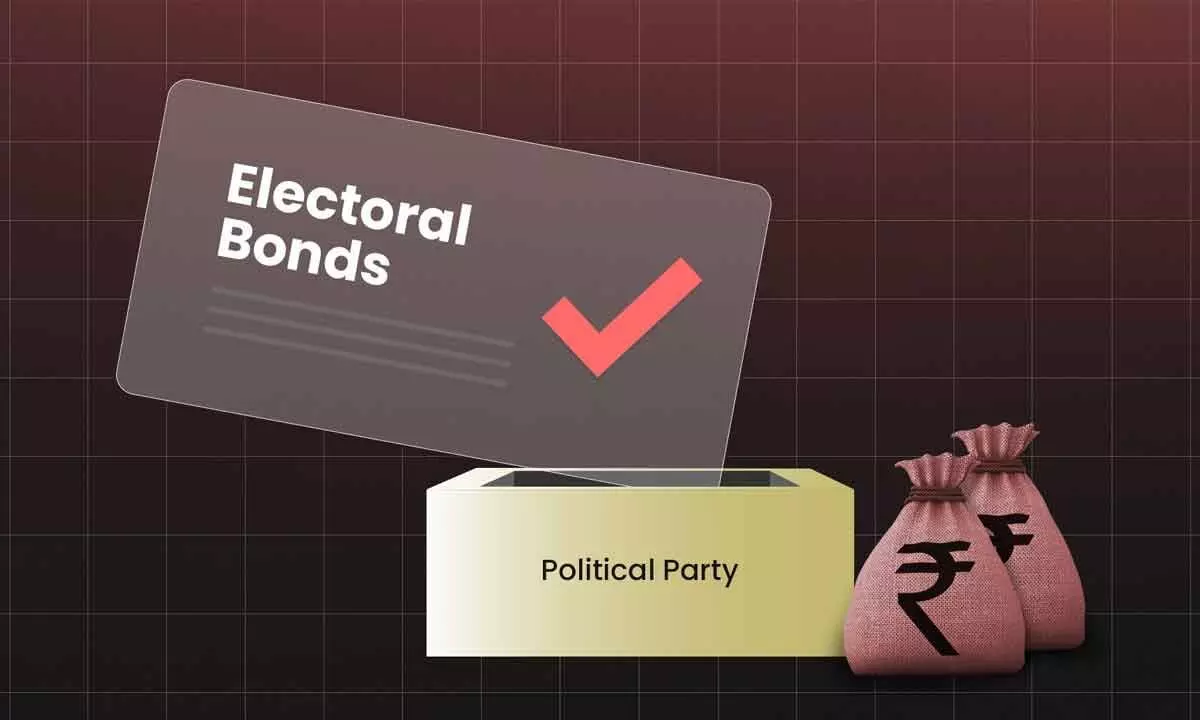Anonymous contributions from electoral bonds have mostly gone to ruling parties: SC
Donations from electoral bonds rose ten-fold from Rs. 221 crore in 2017-18 to Rs. 2,664 crore in 2021-22
image for illustrative purpose

The Supreme Court, while striking down the electoral bonds scheme, observed that the majority of contribution through bonds has gone to political parties, which are ruling parties in the Centre and the states.
It said that analysis of the annual audit reports of political parties from 2017-18 to 2022-23 reflects that there has also been a substantial increase in contribution and donation through electoral bonds.
For instance, in the financial year 2017-18, around Rs. 221 crore was donated through electoral bonds to different political parties across the spectrum. However, in 2021-22, the contribution saw a ten-fold increase at a staggering Rs. 2,664 crore.
On the top of the list, Bharatiya Janata Party (BJP) received a total of Rs. 210 crore in 2017-18 and the donation rose to Rs. 1,294 crore in 2022-23.
The table contained in the judgment, among other data, indicated that in 2021-22, Indian National Congress (INC) received Rs. 236 crore; Trinamool Congress – the ruling party in West Bengal – obtained Rs. 528 crore and Tamil Nadu's ruling party DMK received Rs. 306 crore.
The Supreme Court said that the share of income from unknown sources for national parties rose from 66 per cent during the years 2014-15 to 2016-17 to 72 per cent during the years 2018-19 to 2021-22.
"From 2019-20 to 2021- 22 the bond income has been 81 per cent of the total unknown income of national parties," it added.
Further, it said that the total unknown income, that is donations made under Rs. 20,000, sale of coupons etc., has not shown ebbing and has substantially increased from Rs. 2,550 crore during the years 2014-15 to 2016-17 to Rs. 8,489 crore during the years 2018-19 to 2021-22.
The apex court noted that the bonds income between the years 2018-19 ando 2021-22 constitutes 58 per cent of the total income of the national political parties.
In his separate concurring opinion, Justice Sanjiv Khanna based on the analysis of the data arrived at the conclusion that the electoral bonds scheme fails to meet the balancing prong of the proportionality test.
"However, I would like to reiterate that I have not applied proportionality stricto sensu due to the limited availability of data and evidence," Justice Khanna said.
His opinion contained the data as available on the website of the Election Commission (EC) and the data submitted by the petitioners.
However, Justice Khanna clarified that the court had not opened the sealed envelope given by the EC.
In a unanimous verdict, CJI DY Chandrachud-led Constitution Bench of the Supreme Court struck down the electoral bonds scheme saying that denying voters the right to know the details of funding of political parties would lead to a dichotomous situation and the funding of political parties cannot be treated differently from that of the candidates who contest elections.

